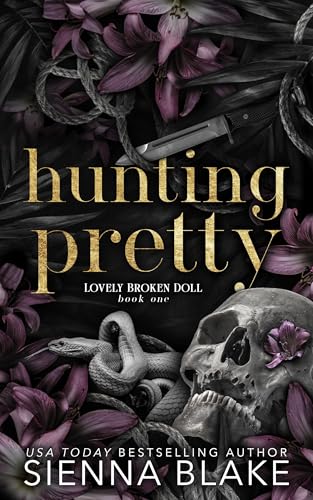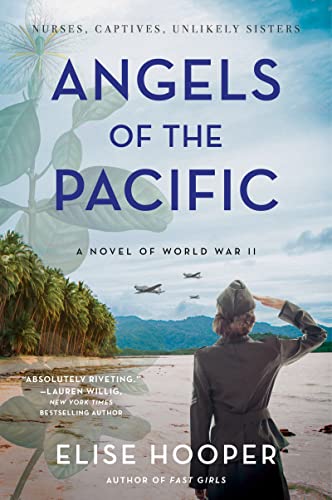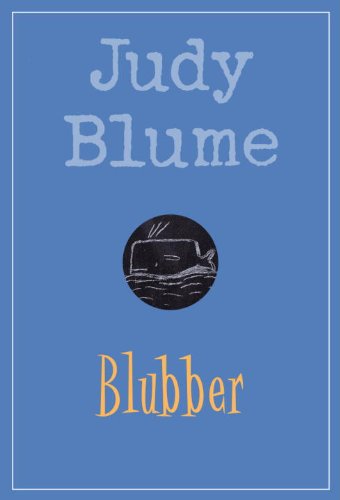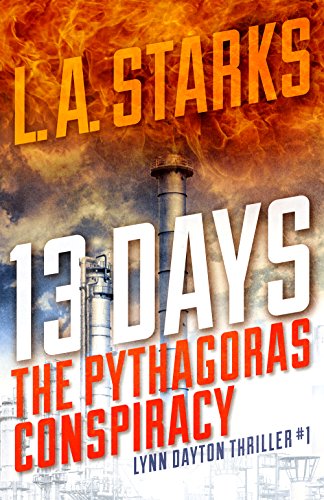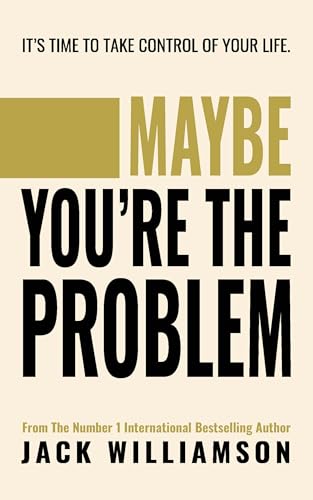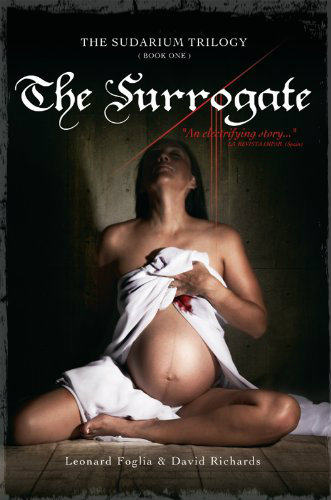an excerpt from
Tears of Tess
by Pepper Winters

Three little words.
If anyone asked what I was most afraid of, what terrified me, stole my breath, and made my life flicker before my eyes, I would say three little words.
How could my perfect life plummet so far into hell?
How could my love for Brax twist so far into unfixable?
The black musty hood over my head suffocated my thoughts, and I sat with hands bound behind my back. Twine rubbed my wrists with hungry stringed teeth, ready to bleed me dry in this new existence.
Noise.
The cargo door of the airplane opened and footsteps thudded toward us. My senses were dulled, muted by the black hood; my mind ran amok with terror-filled images. Would I be raped? Mutilated? Would I ever see Brax again?
Male voices argued, and someone wrenched my arm upright. I flinched, crying out, earning a fist to my belly.
Tears streamed down my face. The first tears I shed, but definitely not the last.
This was my new future. Fate threw me to the bastards of Hades.
“That one.”
My stomach twisted, threatening to evict empty contents. Oh, God.
Three little words:
I was sold.

*Starling*
“Where are you taking me, Brax?” I giggled as my boyfriend of two years beamed his slightly crooked smile and plucked my suitcase from my hands.
We crossed the threshold of the airport and nerves of excitement fluttered in my stomach.
A week ago, Brax surprised me with a romantic dinner and an envelope. I grabbed him and squeezed him half to death when I pulled free two airplane tickets with the destinations blacked out by a marker.
My perfect, sweet boyfriend, Brax Cliffingstone was taking me somewhere exotic. And that meant connection, sex, fun. Things I sorely needed.
Brax had never been able to keep a secret. Hell, he was a shockingly bad liar—I caught his fibs every time when sky-blue eyes darted up and to the left, and his cute ears blushed.
But, somehow, he kept quiet on the whole mysterious holiday. Like any normal twenty-year-old woman, I searched our apartment ruthlessly. Raiding his underwear drawer, the PlayStation compartment, and all the other secret hidey-holes where he might’ve kept the real plane reservations. But, for all my snooping, I came up empty.
So, as I stood in the Melbourne airport, with a crazy happy boyfriend and nerves rioting in my heart, I could only grin like an idiot.
“Not telling. The check-in clerk can be the one to ruin my surprise.” He chuckled. “If it were up to me, I wouldn’t tell you until we arrived at the resort.” He dropped the suitcase and dragged me toward him with a smirk. “In fact, if I could, I’d blindfold you until we got there, so it would all be a complete surprise.”
My core clenched as thoughts flared with hot images—sexy, sinful visions of Brax blindfolding me, taking me roughly, completely at his mercy. Oh, God, don’t go there again, Tess. You were going to block thoughts like that, remember?
Ignoring myself, I gasped as Brax’s fingers grazed my flesh. I shuddered, and my sequined top became insubstantial.
“You could do that, you know?” I whispered, dropping my eyelids to half-mast. “You could tie me up….”
Instead of pouncing and kissing me like crazy for offering him the chance to dominate, Brax swallowed and looked as if I told him to slap me with a dead fish.
“Tess, what the hell? That’s the third time you’ve quipped about bondage.”
Rejection crushed, and I dropped my gaze. The tingles between my legs popped like dirty bubbles, and I let Brax shove me back into the box where I belonged. The box labelled: perfect, innocent girlfriend who’d do anything for him, as long as it was in the dark and on my back.
I wanted a new label. One that said: girlfriend who will do anything to be tied, spanked, and fucked all over rather than adored.
Brax looked so disappointed and I hated myself. I need to stop this.
I reminded myself for the three-hundredth time, that the sweet, wonderful relationship I had with this man was far more important than a bit of sexy play in the bedroom.
I mumbled, “It’s been too long. Almost a month and a half.” I remembered the exact date when the lacklustre sex, in good ole missionary, took place. Brax worked overtime, my uni course demanded a lot of brainpower, and somehow life became more important than a roll beneath the sheets.
He froze, looking around us at the hordes of people. “Great time to bring that up.” He guided me to the side, glaring at a couple that came too close. “Can we talk about this later?” He ducked his head and kissed my cheek. “I love you, hun. Once we aren’t so busy, then we can have more alone time.”
“And this holiday? Will you take me like the girlfriend you adore?”
Brax beamed, enveloping me in a hug. “Every night. You wait.”
I smiled, letting anticipation and happiness dispel my angst. Brax and I wanted different things in the bedroom department, and I hoped, prayed, got on my knees and begged, that I didn’t ruin what we had because of it.
My blood simmered for things entirely not sweet. Things I didn’t have the courage to say. Downright sinful things that amped my blood to lava and made me wet—it wasn’t chaste kisses.
And standing in his arms, in a public place, with that sexy smirk on his mouth, and hands on my waist, I trembled with a cocktail of need. This trip would be exactly what we needed.
He brushed his lips against mine, no tongue, and I had to squeeze my legs together to stop the vibrations threatening to overtake me. Is there something wrong with me? Surely, I shouldn’t be this way. Maybe there was a cure—something to take the edge off my desires.
Brax pulled back, smiling. “You’re gorgeous.”
My eyes dropped to his shapely mouth, breathing faster. What would Brax do if I pushed him up against the wall and groped him in public? My mind turned the fantasy into him pushing me hard against the wall, his thigh going between my legs, hands pawing, bruising me because he couldn’t get close enough.
I swallowed, battling those far too tempting thoughts. “You’re not so bad yourself,” I joked, plucking his baby-blue t-shirt that matched his eyes so well.
I loved this man, but missed him at the same time. How was that possible?
Life wedged between us: the university course stole five days a week, not to mention homework, and Brax’s boss landed a new building contract in the heart of the city.
Each month trickled into the next, and lovemaking became second fiddle to Call of Duty on PlayStation, and architectural sketching for the extra credit I’d signed up for.
But all of that would change. Our life together would improve, because I was going to seduce my man. I’d packed a few naughty surprises to show Brax what turned me on. I needed to do this. To save my sanity. To save my relationship.
Brax’s fingers squeezed my waist and he stepped away, ducking down to grab the suitcases again.
If I wanted to seduce him, wasn’t it best just to go for it? Planning and dreaming seemed wrong when he stood right in front of me.
I dropped my shoulder bag and grabbed the lapels of his beige canvas jacket, yanking him into me. “Let’s join the mile-high club,” I whispered, before crushing his mouth with mine. His eyes flashed as I leaned forward, pressing my entire body against his. Feel me. Need me.
He tasted of orange juice and his lips were warm, so warm. My tongue tried to gain welcome, but Brax’s hands landed on my shoulders, holding me at bay.
Someone clapped, saying, “You attack him, girl!”
Brax stepped back, looking over my shoulder at the bystander. He dropped his eyes to mine, temper flashing. “Nice spectacle, Tess. Are we done? Can we go check in?”
Disappointment sat like a heavy boulder in my belly. He sensed my mood—like he always did—and gathered me into a hug again. “I’m sorry. You know how much I hate PDA’s. Get me behind closed doors, and I’m all yours.” He smiled, and I nodded.
“You’re right. Sorry. I’m just so excited to go on holiday with you.” I dropped my eyes, letting wild, blonde curls curtain my face. Please, don’t let him see the rejection in my eyes. Brax used to say my eyes reminded him of dove’s feathers as the white bird flew across the sky. He could be very poetic, my Brax. But I didn’t want poetry anymore. I wanted… I didn’t know what I wanted.
He chuckled. “You’re right about being excited.” He waggled his eyebrow, and together we headed to check-in. The girl who’d told me to attack him winked and gave me a thumbs up.
I smiled, hiding the residual pain that my attack didn’t inspire the same reaction.
We joined the queue, and I glanced around. People milled like fish in a pond, darting and weaving around groups of waiting passengers. The vibe of an airport never failed to excite me. Not that I travelled a lot. Before the university course, I travelled to Sydney to study the architecture there, and sketch. I loved to sketch buildings. At ten-years of age, my parents took my brother and me to Bali for a week. Not that it was fun going on holiday with a thirty-year old brother, and parents who despised me.
Old hurt surfaced, thinking of them. When I moved in with Brax eighteen months ago, I drifted apart from my parents. After all, they were almost seventy-years old, and focused on other ‘important things’, rather than a daughter who’d come twenty years too late. A dreadful mistake, as they loved to remind me.
They’d been so horrified at the pregnancy, they promptly sued the doctor for botching my father’s vasectomy.
An old enemy: rejection, ruled my life. I supposed the desperation to connect with Brax was a way of confirming that someone wanted me. I didn’t just want intimacy, I needed it. I needed to feel his hands on me, his body in mine. It was a craving that never left me in peace.
I blinked, putting the impossible together. I needed Brax to be rough because I needed to be claimed.
Oh, my God, am I that screwed up?
I followed Brax, in a daze, to the counter and let him put the suitcase on the scales.
“Morning. Tickets and passports, please,” the girl in her smart uniform said.
Fumbling with luggage tags, Brax asked, “Honey, can you give her our tickets? They’re in my back pocket.”
I reached around and pulled out a travel wallet from his baggy jeans pocket. Although twenty-three years old, Brax still dressed like a grungy teenager. I squeezed his butt.
His eyes flashed to mine, frowning.
I forced a bright smile, handing our documentation to the clerk. I didn’t even check where we were headed, too focused on ignoring the twinges of sadness at not being allowed to grope my boyfriend. Maybe I’m too sexual? My fears were right. I was hardwired all wrong.
“Thank you.” The girl’s eyes dropped, showing heavily shadowed lids. Her brown hair, scraped back into a tight bun, looked plastic with so much hair spray. She bit her lip and pulled out a ream of tickets before checking our passports. “Do you want your bags checked all the way through to Cancun?”
Cancun? My heart soared. Wow. Brax outdid himself. I never would’ve thought he’d travel so far from home. I turned and kissed his cheek. “Thank you so much, Brax.”
His face softened as he captured my hand. “You’re welcome. There’s no better way to celebrate our future, than going to a country that values friendship and family.” He leaned closer. “I read that on Sundays, the streets come alive with strangers dancing. Everyone becomes connected by music.”
I couldn’t tear myself from his crisp blue eyes. That was why I loved him, despite not being completely satisfied. Brax suffered the same insecurities. He didn’t have anyone but me. His parents died in a car accident when he turned seventeen; he was an only child.
Brax owned the apartment we lived in, thanks to the life insurance pay out, and his dad’s husky, Blizzard, came with the bargain.
Blizzard and I didn’t see eye to eye, but Brax loved the dog like a tatty teddy-bear. I tolerated the beast, and kept my handbags far from chewing height.
“You’re the best.” I captured his chin, planting a kiss, not caring he was uncomfortable. Hell, the couple beside us were practically dry humping; a peck on the mouth was PG stuff.
The girl sighed across the counter. “Is this your honeymoon? Cancun is amazing. My boyfriend and I went there a few years ago. So hot and fun. And the music is so sexy, we couldn’t keep our hands off each other.”
Images filled my mind of twirling around Brax in a new sexy bikini. Maybe a change of scenery would amplify our lust.
I said, “No, not our honeymoon. Just a celebration.”
Brax grinned, his eyes sparkling.
An idea ran wild. Was this trip special? Was Brax going to propose? I waited for the heart-flipping joy at becoming Mrs. Cliffingstone, but a swell of comfort filled me instead. I would say yes.
Brax wanted me. Brax was safe. I loved him in my own way—the way that mattered, the long-lasting kind.
Silence descended while the girl tap-tapped her keyboard and printed off our boarding passes. After tagging our bags, she handed everything back. “Your bags are checked all the way to Mexico, but you’ll have a stop in Los Angeles for four hours.” She circled the gate number and time. “Please make your way through immigration, and proceed to the departure lounge. You board at eleven-thirty.”
Brax took the documentation and shouldered his laptop bag. Linking hands with me, he said, “Thank you.”
We headed toward the Passengers Only lounge. We had little over an hour before boarding. I could think of a lot of things we could do in an hour, but I doubted Brax would be into them.
But we were on our way to Mexico. A different country and a different bed awaited us. I could be patient.
I made up my mind, as Brax browsed the tax-free PlayStation games, that tonight would mark a new beginning for us. Goodbye contentment, hello lust.
Our relationship was going to rip and roar with love and flame. I would make sure of it.
Yes, tonight things would be different.
I needed different.

*Blue Jay*
Somewhere, hundreds of kilometres above earth, I woke to dry, recirculated air, and the sickening smell of over nuked dinners.
Brax brushed his lips on my forehead. “Dinner is being served, honey.”
I scooted upright in the prison of a chair, wincing at my flat butt. Holy hell, it took a long time to travel across the world.
An air-hostess wheeled a trolley slowly down the aisle, smiling fakely and handing out tinfoil wrapped trays.
“What do you want?” Brax asked, slapping a hand over his wide yawn.
I knew how he felt. All I wanted was a hot shower, a soft bed, and Brax to spoon me.
I shrugged. “I dunno. What were the options again?”
The air-hostess arrived at our row, beaming. “Chicken casserole or beef stir-fry?”
Both sounded woefully unappealing, but I said, “Chicken, please.”
Brax ordered the beef, and silence reigned while we ate. Whenever I thought about arriving at the hotel, a mini montage took over. The movie played in my mind: kissing him, then pouncing with need. Brax would push up my skirt and claim me in front of wide-eyed guests. My libido has left the realm of normalcy.
Flutters wouldn’t stop in the darkest part of my belly. The knowledge that I’d finally confess what I needed sexually, terrified and thrilled me.
Brax smiled, chewing a piece of broccoli. “What are you thinking about? You’re wearing that stunned tuna look of yours.”
Oh, nothing, sweetie. Just fantasizing about you pinning my wrists and taking me hard. He’d probably throw himself out the plane. I was the one twisting our relationship. I was the one who changed.
Change, to Brax, was not a good thing.
I dropped my gaze, shoving a piece of dried chicken around. “I was thinking how much I love you, and how I can’t wait to be in bed. Alone.”
His face softened, looking so handsome in the dim interior lights. The glow highlighted his smooth jaw, blue eyes, and floppy brown hair. His strong arms and stocky frame screamed builder. Hell, I loved how he stood so big and strong. He could dominate me so easily… but never did. He treated me like glass. Special cut-crystal—placed me on a pedestal where I had to shine and remain dust free and perfect.
He pressed his forehead against mine. “I love you, too. I’m so happy we’re spending this time together.” He pushed his meal away, or as much as he could on the tiny tray-table, and awkwardly reached into a pocket. “I have a present for you. To remind you of this amazing holiday.”
I couldn’t breathe. My tongue turned into a brick and saliva morphed into mortar.
He dropped a black velvet box into my lap then rubbed the back of his neck. “I know we’ve been together for two years, and I love you with all my heart, Tess. But each year I spend with you, I grow more and more nervous I’m going to lose you.”
Suddenly, the cabin stifled with old demons from our pasts, haunting us. I leaned over, kissing his lips gently, just the way he liked. My heart hurt for him. Would he ever get over losing his parents? The doctors said his night-terrors would stop eventually, but it’d been six years since his folks died, and he still couldn’t fall asleep without pills.
I whispered, “You will never lose me, Brax. Never. I swear it.” I kissed him again and his lips opened under mine. His tongue flicked out and licked my lower lip, sending heat shooting like little stars.
I moaned and pressed harder, opening wider, forcing more intensity.
He pulled back, smirking shyly. His eyes darted around the cabin as if we’d be reprimanded by the flight attendants.
I murmured, “Can I open it now?”
His face flashed with confusion. “What?”
Feminine satisfaction swelled, I’d distracted him enough with a kiss that he’d forgotten. “The gift. Can I open it now, or wait till we get to the hotel?” Boldness sizzled and I whispered, “Because I have a present for you, too, but you have to wait till we arrive.” My voice, layered with husky welcome, caused his nostrils to flare.
“Y—you can open it now.”
I grinned, grabbing the box, happier than I’d been for a while. Brax was responding. Captive audience, I supposed.
I cracked open the box; my heart flurried. “Brax, it’s… gorgeous.”
“You like it?” His voice heightened to boyish delight as he plucked the bracelet from its cage of velvet.
“I don’t like it. I love it.” I placed the box on my lap, holding out a wrist. I couldn’t tear my eyes off the dainty silver jewellery. It symbolized us: gentle love hearts entwined with silver strands, the occasional glint of diamonds at the centre of each heart.
Brax’s fingertips grazed the underside of my wrist, securing the clasp. I shivered, sucking in a shaky breath.
“Tess … I—”
Tension blossomed between us, like a fast unfurling flower, and I ached. Ached for him. Ached for connection. Ached for his body inside mine. Something hot seared in our gaze, and Brax clenched his jaw.
He dropped his eyes, breaking the spell.
Pretending nothing happened, I rested my head on his shoulder, inspecting my new bracelet. “I’ll never take it off.”
He sighed, snuggling closer, kissing the top of my head. “I don’t want you to. It’s yours forever. Just like me.”
I inhaled sharply, breathing in his soft apple scent from our shared body wash. Would he ever stop making me hurt and heal at the same time?
“Forever,” I whispered and closed my eyes.
The next time I awoke, tyres bounced on the runway, and in a foggy haze, we disembarked. The airport was manic, even at one in the morning, and we let the sea of passengers guide us through immigration and processing.
By the time we headed outside to the awaiting taxis, my scratchy eyes felt like a cat had mistaken them for cat-nip, and my mind was cotton wool.
I let Brax lead the way, following obediently while he searched for our driver to the hotel.
“Stay here. I’m going to ask at the info desk. The hotel should’ve arranged a shuttle for us.”
He parked the suitcases by the curb, and I took his laptop satchel, blocking it with my feet. I plonked on top of one of the cases. “No problem. I’ll guard the bags.”
He caressed my cheek. “I’ll be right back.”
I smiled, capturing his hand as he pulled away. “I’ll miss you till then.”
With a grin, he turned and headed the way we’d come. I admired his fine butt in his baggy jeans. Just once, I’d love to see him in a nice suit, or at least some fitted trousers. No matter how many compliments I rained on him, Brax acted forever self-conscious. Silly man. He didn’t see the way other women looked at him, but I did. My claws unsheathed every time.
Ten minutes passed, while I sat in the little oasis our bags created, and my nerves steadily grew. Mexico was loud, boisterous, and the air hung heavy and wet with humidity. We were used to the heat in Australia, but that was dry heat. The moisture saturated my clothes, turning my curly hair limp.
“Excuse me, señorita.”
I twisted on the case, looking behind me. A good-looking Mexican man took off a baseball cap, bowing slightly. His black eyes assessed, making me squirm on the inside.
“Yes?” I asked, standing upright, looking for Brax out the corner of my eye. Where the hell was he?
“I wondered if you were here on your own? Do you need a lift somewhere? I have a taxi. I can take you wherever you need to go.”
A wide smile showed stained teeth and skin crinkled around his eyes in a friendly way. My instincts didn’t flare into panic mode; I relaxed a little. “No, thanks. I’m here with my boyfri—”
“Tess?” Brax appeared like an apparition, glaring at the man. “Can I help you?”
The man backed up, putting his baseball cap on. “Not at all, señor. Just wanting to make sure such a pretty girl stays safe. This city is not good for women left alone.”
Brax puffed his chest, dragging me toward him. My eyes widened as his arm clenched around my shoulders. “She’s safe. Thanks for your concern.” He turned to me, dismissing the man entirely. “I’ve found the shuttle, you ready to go?”
I nodded, looking to where the man had been, but he’d disappeared—swallowed by the heaving crowd. I bit my lip; just how safe was this country? I’d heard the horror stories, as well as the great regales. Either way, I wouldn’t be letting Brax out of my sight again. I wasn’t stupid enough to think nothing could harm me.
Dragging our suitcases, we made it to the shuttle bus, and spent the next forty-five minutes bouncing and swerving on Mexican roads. The traffic was psychotic—an accident begging to happen—and my heart remained in my throat most of the way. Traffic lights meant nothing, and scooters were given right of way. Pedestrians and cyclists threaded like a massive, living organism at two in the morning. If it was this crazy now, what the hell was it like during normal hours?
It seemed life never slept here. Every bar we passed, pumping with Salsa dancers and spicy tunes, dispelled my sleepiness. I wanted to dance, to rub against Brax, to drink yummy cocktails, and enjoy ourselves.
I immediately loved Mexico.
I’d gone my whole life thinking I was timid, brow-beaten, and unwanted by my family, only to find I was a lust-filled dancer, with so many dark desires. This trip would allow me to inspect who I truly was, to be honest, and find the real me. To stop being Tess, the girl who hadn’t stood up for anything in her life—the girl who morphed into what others wanted—and evolve. I’ll find the true Tess. My stomach twisted. What if the real me wasn’t worthy of Brax?
We pulled up to a sweeping resort with huge carvings of sombreros and tropical fruit. A fountain jetted water so high, it almost touched the three story ceiling.
A bellhop took our luggage and Brax checked us in. I wandered in bliss and wonderment. The resort was a living jungle: palm trees, ferns, and exoticness in every corner.
I thrummed with anticipation. I didn’t care we’d been awake for twenty-four hours. I wanted to explore and walk along the beach I heard in the distance. The soft slap of waves on sand enticed skinny-dipping and making love under the moonlight.
Arms banded around my waist, pulling me backward. I gasped, landing against hard muscle and wrinkled clothing. Brax kissed my collarbone; I shuddered. “Ready for bed, hun?”
Oh, yes, I was definitely ready for bed. More than ready.
I nodded breathlessly.
Brax swivelled me in his arms, taking my luggage at the same time. A bellhop stood behind, smiling indulgently. “Please, go ahead. I’ll bring your bags.”
We entered the lift, and the bellhop squeezed in, too. The mirrored interior reflected in every direction. My hair was a tangled bird’s nest, my sheer blouse crumbled and ready for a wash, and my grey-blue eyes sparkled with lust and love.
I hoped Brax saw what twinkled in my soul. How much I cared for him.
His blue eyes were warm and content as we disembarked the lift, making our way to our room. The corridor was a wide balcony, open-air with huge potted ferns and little cosy seats arranged for privacy.
“This one, if you please, sir,” the bellhop said, pointing to a door as we walked.
Brax grinned and inserted the key card. Once he placed the card in the little holder by the door, soft light illuminated. I moved forward in a trance.
The room was perfect Mexican décor of carved wood and bright paintings, the bedspread was a fiesta of colours and textures. Hand woven rugs in purples, reds, and yellows littered the hardwood floor.
I squealed in childhood amazement and dashed to the balcony. The gloom of darkness whispered magically as I listened to the waves hissing on the shore.
Heaven. I’m in heaven.
Brax tipped the bellhop and closed the door. I twisted to face him, breathing accelerated. We were finally alone after a crazy long journey.
My new bracelet tinkled, overflowing my heart with joy. I stepped toward him. Brax held out his arms, looking tired but happy.
Fitting me into his embrace perfectly, he rested his chin on my head. “Sorry I couldn’t afford five stars, Tessie.”
My eyes widened. We were in the middle of a dream and he worried he couldn’t give me more. Couldn’t he see this was perfect?
I didn’t respond. Instead, I captured his face in my hands. He froze, staring deep into my eyes. I sent messages of hunger and hot swirling need. I wanted to crawl inside his soul and light a fire to match the flames licking me.
I kissed him.
Brax tilted his head, allowing my tongue to slink between his lips, but he didn’t gather me closer. Come on. Please, need me, too.
I kissed harder, pressing against him with an urgency growing out of control. I was too hot. I needed him too much, for far too long. I should’ve spoken sooner—told him how badly I needed to be possessed. For months, I felt cast adrift, like he was no longer my anchor. I needed him to remind me I belonged to him, just like he belonged to me.
Brax chuckled beneath my kisses, twisting his lips. “What’s got into you, Tess? You can’t keep your hands off me.”
My stomach twisted; I blushed. “Is it so bad I want you? Need you? We’re in a new country. Can we celebrate our first night?” My eyes flew to the bed and back to his gaze. “We could have a shower together, then I can show you my present.”
My present consisted of dressing in fishnet tights, garter belt, and the ridiculously expensive push-up bra I bought. I’d planned it all. I’d strut my stuff, and Brax would gawk, making me feel like a goddess. I’d massage him with strawberry body oil, until he couldn’t stand it any longer and secured my wrists with my knickers. He’d take me from behind, our bodies slip sliding intoxicatingly, arousing me beyond belief. I’d even been to the beauticians and had some rather painful waxing in my nether regions especially for the occasion.
I trembled at the thought of Brax’s gaze darkening, his body becoming feral and possessive.
He pecked my lips, groaning, “I’m super tired. Can we rain check till the morning?”
Disappointment flooded my bloodstream, dousing my need like ice water. Even though it killed me and tears tickled, I dropped my arms, releasing Brax from my embrace. “That’s okay. I understand.”
He sighed. “Okay, okay. If you need me so badly, I’m game.” His voice was resigned, but he smiled tiredly.
Are we really this stale?
Passion fizzled to fear. I couldn’t show him. Not now. Not when he seemed happy with vanilla and missionary every other month. I didn’t want him thinking I was a sexual deviant, or ruin our holiday before it’d even begun.
I made up my mind not to spill my secrets. It was a mistake to think I could. “No, you’re right. It’s late. We should go to sleep,” I muttered.
Moving away, I didn’t get far before Brax captured my elbow. Groaning, he ran a hand through his brown hair. “Why did you do that?”
I blinked. “Do what?”
“Lie. You never lie.”
Shame shimmered over my skin; I looked at the bright rug on the floor. “I’m sorry, Brax. I just—I don’t want to show you anymore.”
He straightened, sucking in a breath. “Why? What’s changed?”
Useless tears invaded my eyes. Stop tearing up! It wasn’t bad—just different. But I no longer wanted different. I wanted to please Brax. I hated being selfish. I’m a horrible person.
He ducked, looking into my watery gaze. “Hey, Tess. What is it? Tell me.” He pulled me to the bed and into his lap. I huddled into his chest.
What if I told him and he hated me? He’d pull away and leave me alone, just like my parents. I’d be another mistake.
I didn’t answer, letting him rock me, trying to untangle my jumbled thoughts.
Brax murmured, “Remember how we met? What you said to me?”
Of course, I remembered. He’d made me bleed. Our first encounter didn’t exactly conform to first meeting etiquette. I giggled quietly. “I called you an arse.”
He laughed. “Not that.” Stroking my back, he dived into past memories. “I was walking Blizzard on the beach and threw a stick for him. Out of nowhere, this girl careened like a fallen angel, completely out of control I might add, on a kite board. She bounced along the surf, splashing and spluttering, before a huge gust of wind catapulted her out of the water and right into the face of my husky.”
A phantom injury twinged at the memory. I’d been a flipping idiot to think I could kite board. It had been a ‘get outside my comfort zone’ attempt. It failed. Rather drastically.
Brax continued, “I couldn’t believe it when your kite took off down the beach, dragging you and my dog with it. I managed to pounce on you, but it took a good half an hour to untangle you from Blizzard with all those strings and harnesses.” His gaze darkened. “I was so worried when I finally got you free. You were bleeding pretty bad from your shoulder and had a black eye. My poor dog had a sore paw and a broken stick.” He ran a finger along my cheekbone.
The broken stick had caused the bleeding shoulder. Freakin’ stick.
“I asked if you wanted to go to the hospital, and you asked if it was really that bad. I didn’t want you to freak out, so I lied. I said it was just a scratch, when in reality it was a gaping hole, gushing with blood and bits of bark sticking out everywhere. I lied ‘cause I didn’t know what to say.”
I flinched. It had been pretty bad. Earned me eight stitches, but Brax never left my side.
“I lied and you said—”
“Never lie. The truth hurts less than fibs and fakers.” I remembered that day as if it happened two hours ago. I’d been hurt, because it was my eighteenth birthday and my parents forgot.
“The truth hurts less than fibs and fakers,” Brax repeated. “That’s always stayed with me because it’s so honest and raw. It told me so much about you and made me fall in love. So many people lied to me about my parent’s death. Glossing over the darkness, and hiding the gnarly truth.”
His arms latched tighter, pressing me hard against him. “Not having the chance to say goodbye will haunt me forever. And not knowing the truth about why they crashed eats at my soul.”
His eyes burned into mine. “So, Tess. Don’t lie to me. The truth is the only path for us.”
I nodded; he was right. I should never have brought it up if I didn’t have the guts to follow through.
“Let me go. I’ll show you.” Please, please like it. Like me.
He reached for my hand, squeezing my fingers. “I’d like to see whatever you want to show me.”
I bit my lip. His eyes changed from crisp blue to smouldering cerulean. Hot happiness scorched me, and I kissed him. “You have no idea what this means to me.”
He ducked his head, looking through half-lidded eyes. “I think I do.” Helping me off his lap, he tapped my butt. “Go. Be quick, so I don’t fall asleep.”
My new confidence deflated. Can I really ask him to change?
Brax groaned. “Tess, you’re over thinking it.” He pulled me back, wedging me between his spread thighs. “I’m never letting you go. So whatever it is, don’t be afraid.” He dropped his hand, capturing the silver bracelet. “I hope you know this isn’t just a bracelet to me.” His fingers stroked the underside of my arm; I shivered. “It’s a promise of more. When I can afford what you deserve, I’ll make you mine.”
I leaned in and hugged him tight. “I’m already yours.”
His breath turned shallow and he leaned up to kiss me. It started innocent, sweet, but slowly, he tilted his head, kissing deeper. His hand dropped to my waist, closing the remaining distance. His tongue licked mine in gentle invitation.
I clenched my hands on his shoulders as I warmed, shedding fear and uncertainty. I moaned as he nibbled my bottom lip, reaching behind my neck to make me bend into his kiss.
Everything clenched, revved, and grew slick with need.
Do not attack him. Do not attack him.
Brax stopped kissing me, and our breathing rasped. “Show me.”
He pushed me away gently, and I went to my suitcase. Unzipping the side pocket where I’d hidden the vibrator, I took the plastic bag with my new lingerie, and hid them behind my back. Sucking in a deep breath, I said, “I’ll be right back.”
Brax nodded. “I’ll be right here.
I retreated into the bathroom and flicked the lock. Placing the bag in the sink, I stared at my reflection. After a long flight, I was a mess, but I wanted to get it over with. I couldn’t stop feeling like it was a huge mistake.
You can do this. Just be honest. Everything else…we can work through it. It could turn out to be a good thing, the next step in our relationship. It might make us stronger.
I shed my clothes and stepped into the lacy purple G-string and matching push-up bra. The bra may have been über expensive, but it made my boobs look a million dollars, turning my C’s to generous D’s that spilled over the top.
I wanted to feel sexy and hot, but I really felt like a fraud. My snowy skin looked virginal against the smutty underwear—God, I look like a wannabe idiot dressed in her mum’s lingerie.
My fingers trembled as I unrolled the fishnets up my leg, and snapped the garter belt clips to keep them in place. Even more ridiculous.
I sighed, scowling at my reflection. I wanted sexy and crude and dirty—what I got was insecurity and regret.
Dammit, this wasn’t how I wanted to feel. New lingerie promised empowerment and sauciness. All I wanted to do was put my flannelette pyjamas on and forget the whole fiasco.
I met my eyes in the mirror. Just get it over with.
Ruffling my hair, I sucked in my belly and stepped out of the bathroom.
Brax was sprawled on the bed. He sat up on his elbows the moment I came into the room. His jaw dropped open, gaze raking over me. Desire exploded in his eyes, sparking something deep inside, overriding the fear of rejection.
Feminine power replaced self-consciousness.
Brax scooted higher, sitting on the edge of the bed. He shifted, readjusting his shorts. “Wow—”
Heat flashed with radioactive intensity, and I rushed ahead before he could say anything else, before my confidence could falter. I pulled the vibrator from behind my back. The little rabbit sticking out from the purple, glittery phallus made my cheeks flame. Oh, God, why was I doing this?
Brax swallowed, his eyes locking onto my most personal possession.
“I want us to be more adventurous,” I mumbled, hating my tongue twisting into knots. “I love you, and I love our sex life, but I just thought—well, I’d like to see—if, um….”
Brax slid off the bed, coming toward me slowly. He ripped his t-shirt off at the same time, leaving me to gape like a love-struck moron.
His face was unreadable as he murmured, “You want more?”
More. Such a dangerous word.
I shook my head. “Not more. Different.”
Pain flashed in his eyes before disappearing just as quickly.
“Not all the time. Only, sometimes…”
His hand shook as he reached for the vibrator. “You use this?” His finger hovered over the sliding power button. I couldn’t swallow—mortification closed my throat.
Sure, Tess, showing him your vibrator will be sexy and fun. I wanted to slap myself, but stood completely still, horrified by what he might say. I’d flayed myself open, bared my desires, only to risk ruining Brax’s feelings for me.
I wanted to yell—I’m joking! This isn’t the real me. But my lips glued shut; I couldn’t tear my eyes away from the vibrator in his grip.
Stupid. So stupid.
Brax slid the power switch upward and a battery powered whir filled the room. I looked away as he pressed the power higher. The phallus sprung to attention, screaming all my secrets.
“Different?” His voice echoed with loss and confusion as he stared at the vibrator. No doubt visualizing me writhing in abandon, using an object to get off instead of him. How could I explain not being intimate for weeks on end was torture?
My heart shattered. This was no longer about my needs. It was about his. I’d made him doubt, made him think he wasn’t good enough. Shit.
I grabbed the vibrator, hating it in that moment. I turned the power off, ripped out the batteries, and threw it all in the bin. “Forget it, Brax. It was a stupid idea. I just want you, okay? Please, don’t hate me.” I’m the biggest bitch in history.
He shook himself, hands falling to his sides. His gaze clouded as he stared at the floor. I knew that look. It was the same look when he awoke from a nightmare—terrified of waking up alone. “Tess, you have me. But if I’m not enough—”
“No!” I charged into his arms, tugging him to the bed. “You’re more than enough. I’m so sorry. Forget it. All of it. Please?” Now, I was the one petrified of being alone. If he didn’t think I wanted him, he’d push me away.
Panic made me fumble, and I lay down, pulling him on top. “You’re enough. More than enough. Brax, please—” Tears burned my eyes, chest straining with emotion.
His eyes dropped to my breasts, biting his lip. Ever so slowly, he caressed the soft mound of flesh. “It’s killing me to think I’m not giving you what you need.” His finger dipped lower, finding my nipple inside the bra.
My breath hitched, even though so many emotions rioted within me, my body blazed for his. I needed to connect, to put this mess behind us.
“You’re stunning. I always knew you were out of my league, and seeing you in this underwear makes me realize how sexual you are.” His voice dropped with husky undertones as he continued to touch me. “I’m not sure I can keep up with you. I love you, Tess. I love being with you, but I don’t need to fuck you to be a man. I need you as a friend, as my support. Do you understand?”
His hand dropped from my breast, skirting my stomach, dragging me into a suffocating embrace. I let him squeeze the life out of me—I needed it. I needed him to convince me he wasn’t leaving, that I didn’t just ruin our relationship.
“All I need is you. Honestly, none of that matters. I’m content, so happy, when I’m with you,” I whispered.
My chest ached so badly. Could he hear the words we’d used? I was content and he used me as support. No mention of passion or unbridled lust.
It doesn’t matter. Stop being so foolish. That’s for movies, this is real life.
Brax pulled away, eyes turbulent with embarrassment and need. I reached up, pressing my lips against his. He kissed me back like I always wanted him to—with ferocity, violence bordering on pain.
I moaned, wrapping hands in his hair, tugging closer. That’s what I needed—passion laced with pain.
He broke the kiss, breathing hard. “So, all of this? Can we pretend it never happened?”
Relief ballooned in my chest. Gone was the disappointment I would never be possessed or owned by Brax in bed. I hadn’t ruined us. I couldn’t be more thankful. “Already forgotten.”
He exhaled in a huge gust, smiling crookedly. Kissing the tip of my nose, he said, “Thank you for loving me enough to take what I can give.”
My entire body vibrated with remorse. I couldn’t reply.
Brax reached behind and undid my bra. He drew it off my breasts slowly, dipping his head to suck my nipple. Heat exploded in my core.
Brax still loved me. That’s all that mattered. Nothing else. Not kinky sex, or spicing up the bedroom. I was a very lucky girl. I am so lucky. Lucky.
I bit Brax’s collarbone and he groaned. He shifted so his rapidly hardening erection pressed into my belly.
Trembling, I eased his jeans down his hips. He arched upright, helping me get them off. Once he sprung free, he ripped off the fifty dollar knickers I’d worn for all of ten seconds, and threw them to the floor.
Brax settled between my thighs, gaze locking with mine. I bit my lip as he pressed inside. I wasn’t as wet as I should’ve been and the invasion was pleasure as well as pain.
His eyes snapped closed as he settled deep inside. His erection, stretching and filling, sent waves of safety rather than mind-shattering passion.
We rocked together, and he peppered me in delicate kisses, sweet affection. I grew slick around him, warming, building.
My nipples ached for attention, and I wished he’d bite me just a little, maybe then I might be able to climax.
“Tess,—” he breathed in my ear, picking up speed. His hips pressed harder and I fought the urge to touch myself, to help reach an orgasm.
With another thrust, Brax moaned, his back shuddering as his butt clenched hard. He came inside, wave after wave of ecstasy for him and simple acceptance for me. I stroked his chest, so happy he was able to find release after everything I put him through.
He collapsed on top, sandwiching me between his bulk and the mattress.
I stared at the ceiling, battling so many thoughts, not all of them making sense. Brax huffed, snuggling his face into my breasts.
Within moments, he was fast asleep, leaving me lonely and confused.

*Robin*
“Sign here, please.”
The concierge handed us the compulsory waivers. I gulped, reading the fine print. If we injured, maimed, or killed ourselves while using the hotel provided scooters, the hotel would not be held accountable. If it was such a good idea to rent these things, why the huge disclaimer?
I glanced at Brax. “You sure you want to explore Cancun on a two wheeled death machine?”
Brax bit the top of the pen, frowning at the hire contract. He flashed me a grin. No residue of fear or sadness from yesterday lingered in his face. Thank God.
“You promised this morning. You agreed today was all about what I wanted to do, and tomorrow is all about you.”
I smiled. “Fine. But, tomorrow, you are so going to put up with getting a massage with me. No moaning.”
He drew a cross over his heart and signed the paperwork with a flourish. He laughed, excitement glowing in his blue gaze. “Do you want your own bike, or dinky on the back of mine?”
No way in hell did I trust myself to weave in crazy, un-choreographed traffic in a foreign country. “I’ll go on the back of yours. You do know what you’re doing, right?”
Images came to mind of us being impaled on the bike rack on the front of a bus, or run over by a truck carrying piñatas. I shuddered.
Brax scoffed. “I’ve driven a Harley. How hard can a moped be?”
Pretty damn hard, especially with maniacs driving circles around us.
I scowled playfully. “You drove the Harley for all of ten minutes.”
Bill, a building colleague, encouraged Brax to join the local motorcycle group. Brax tried, and promptly said no, which I was super happy about, as driving without doors and a roof freaked me out.
Brax rolled his eyes, tapping the signature bit of my contract. Sticking my tongue out, I signed.
The concierge beamed and walked around the desk. We were in the lobby, and more guests had arrived, a wave of shuffling bags and smiles. The soft murmur of excitement weaved around us, layered with holiday vibes.
“Follow me, please.” The concierge, in his crisp white shirt and bright orange waistcoat, led the way.
Maybe it wasn’t such a bad idea. Hell, we might even get off the beaten tourist track and find something local and new.
I looped my arm through Brax’s, doubly glad I’d put on leggings and my large cream t-shirt today. The outfit offered the best protection of all the clothes I packed. I hoped the frail fabrics would safeguard if we happened to topple.
We followed the concierge out of the hotel and into the basement car park. He unlocked a canary yellow scooter and retrieved two helmets. “Please make sure you keep these with you at all times. It’s a one hundred dollar fine if you lose them.”
Brax nodded, fastening mine with dexterous fingers. His touch sent my heart thrumming. Giving me a soft smile, he fastened his own helmet and straddled the bike.
I stood there, feeling like a ridiculous, overripe pineapple. The helmet weighed a ton.
The concierge handed me an A4 map, and drew a red oval, which I assumed was the hotel.
“This is where you are.” His minty breath wafted over me as he leaned closer, stabbing the map. “If you get lost, ask a policeman for directions. They are all over the city. And don’t separate. It’s best to stay together.”
My pulse thudded a little. Policemen lurked thick in this city. Not only lurked, but loitered on street corners with weapons and guns. Were the Mexican citizens so ruthless and dangerous?
Don’t answer that. Especially when we were about to explore on a contraption offering no safety whatsoever.
Brax patted the seat behind him; I smiled weakly. Throwing my leg over, I rested my feet on the little stirrups and wrapped my arms around his torso like a python.
Chuckling, he turned on the ignition and tested the throttle. “You won’t fall off with the death grip you have, hun.”
That was the plan. I kissed his neck, loving his shiver. “I trust you.” I tried to convince myself, as much as Brax.
The concierge smiled and left us to it. Brax eased off the clutch and we shot forward. My stomach failed to catch up, but after kangaroo hopping a few times, Brax wrangled the bike into submission.
“Ready?” he said over a shoulder.
Lying, I spoke into his ear, “Yep.”
We travelled out of the gloomy parking garage and into the blazing mid-morning sunshine. Even with dirty streets, Cancun reminded me of a vibrant party.
Brax put his feet down, stabilizing the bike as we stopped on the edge of the busy road. His heart thumped under my arms, concentration making his shoulders tight.
We watched as speedsters, crazy pedestrians, and vehicles painted in more colours than the rainbow shot past. For the hundredth time, I wondered just how crash hot this idea was.
“Which way, Tessie? Left or right?”
I swivelled my head, wrinkling my nose. No break came in the traffic from either direction. North, south, east, west—it didn’t matter when everything looked as death-filled and as foreign as the other.
Impulsively, I said, “Right.” Please, let us return to the hotel in one piece!
Brax nodded, scratching his chin where the strap of the helmet strangled him. He rolled forward, his flip-flopped feet slapping on hot pavement. The bike wobbled while we waited a good ten minutes for courage to join the swarming mass of craziness.
I wanted to suggest flagging, and head to the pool—
“Hold on!” Brax sucked in his abs and twisted the accelerator. The bike whined and took off with a skid.
My heart lurched into my throat as we shot forward, narrowly dodging a cyclist with a mountain of merchandise on the back and zipped in front of a smog spewing bus.
My mouth dried in panic and arms squeezed Brax so tight, his ribcage bruised my biceps. Oh, my God! I wanted off. This isn’t my idea of fun.
Brax laughed as we straightened and drove with the mass. His happiness wrapped around us like a protective bubble, and I tried to stop hyperventilating.
My heart softened. He was enjoying this, and I wouldn’t ruin it. I trusted him to keep me safe.
An hour later, a waterfall of sweat ran under my t-shirt. The bright sun had landed me with a headache, and my brain felt cooked in the helmet. More than once, I’d tried to pull away from Brax’s back, but we were both so hot and sticky, it was disgusting.
We’d relaxed enough to enjoy driving through the labyrinths of streets, exploring side alleys, skirting around markets and peddlers, but now my ass ached, and my thighs had had enough of the vibrations of the scooter.
I needed a drink and somewhere cool—very, very cool.
Almost as if he heard my thoughts, Brax slowed to a stop outside a tiny, decrepit restaurant on the outskirts of the markets we’d driven around.
It looked anything but sanitary, with a sad donkey piñata hanging limp in the sun. The ripped plastic tablecloths didn’t encourage one to linger, and the sign was so blackened with filth, I couldn’t read the name.
“Ugh—” I exploded into a cough as a cloud of exhaust billowed from a rusty car. Very hygienic.
Brax stroked my hands, still clutched around his middle. “You okay?”
I nodded, sucking in a harsh breath. “Yep. I was going to say, surely we can find something better than this dive?”
Brax clambered off the bike, helping me off. My legs were the consistency of rubber. I’d ridden a horse in my childhood and even spread-eagled on a fat animal was better than the scooter. Going over bumps and potholes wasn’t good for my lady parts.
“I’m dying of thirst.” Pursing his lips, he took in the dank appearance. “We’ll just grab a quick drink and leave.” Brax unclipped his helmet and tied it to the handlebars. I did the same, almost puddling to the ground in relief to remove the hotbox from my lank hair.
Brax chuckled. “Bad hair day, huh?”
I reached up, running a hand through his sweaty locks. He leaned into my touch, love sparking in his eyes.
I giggled. “A helmet on a hot day doesn’t exactly equate to sexy hair.”
He pushed his big fingers into my own tangled strands. “I think you look sexy no matter what.” Running fingers down my cheek, he kept going, all the way to my hand.
Threading his fingers with mine, he leaned in, kissing me gently. “Hopefully, this place has cold drinks and ice.”
My skin was on fire and the thought of ice made my mouth water, but I shook my head. “Not allowed ice, remember? Only bottled water. Our Aussie bellies can’t handle the local H2O.”
He sighed. “Good point. Alright, I’ll just have a beer.”
“If you think you’re drinking and driving in this mess they call traffic, you have another thought coming, mister.” I laughed as we entered the gloom of the little café—if it could be called that—more like a falling down cave. The walls were peeling and tacky posters hung sticky-taped in random places, hiding pockmarking in the plaster. I frowned… they looked just like— Hell, are they bullet holes?
Trepidation crawled like icy spiders in my blood. I squeezed Brax’s hand as intuition sat up, ringing a loud warning gong. I was a firm believer in listening to my gut—it saved me more than once. “Brax?”
A woman with tobacco stained teeth grinned a holey smile as she appeared. “Well, well, nice to see some customers on such a hot day.” Her accented voice rasped across my skin like sandpaper. “What can I get you?”
My heart wouldn’t stay still. I wanted to say something. I wanted to leave. But Brax grinned. “Two Cokes, please.”
The woman peered at me, her gaze dark as midnight. “No food?”
I stiffened, hating how jittery I was, how much I wanted to run. Before Brax could decide he was hungry, as well as thirsty, I said, “Just drinks. And quickly, we’re supposed to be somewhere, we’re running late.” My snappy tone caused Brax to quirk an eyebrow.
The lady grimaced, shuffling away.
Brax tugged me to a table, and we sat directly under a ceiling fan stirring the hot, stagnant air. Sweat grew tacky on my skin, cooling to a chill. I grabbed a napkin to wipe my face.
“What’s gotten into you?” Brax asked, wiping the back of his neck with his hand.
I looked behind, trying to figure out why my spidey senses wigged out of control, but nothing seemed wrong. It was just a shabby eatery. No more. Maybe I was being stupid….
“Nothing. Sorry. I really want to go back to the hotel for a swim, that’s all.” I flashed a smile.
He grinned, his shiny face pink from the drive. “We’ll go as soon as we’re done.” Laughing, he added, “We must look like such gringos. No wonder the waitress gave us a weird look.”
My gut clenched. Somehow, I knew that wasn’t the reason. She’d looked at me almost…hungrily.
A scuffle sounded behind; I twisted in the chair to look. Toward the back of the restaurant, near the cash register, a man appeared. His voice was low, angry, as he shook the waitress, fingers digging into her upper arm.
My stomach flipped, kicking out trepidation and blowing it into full-fledge



